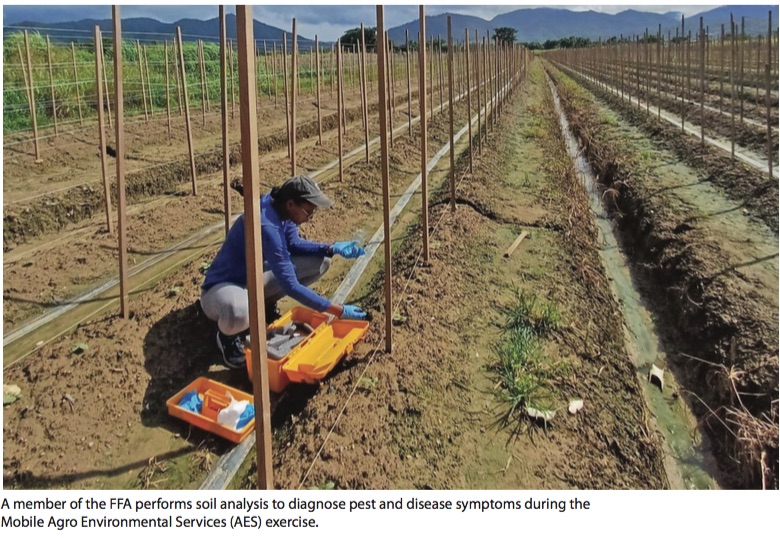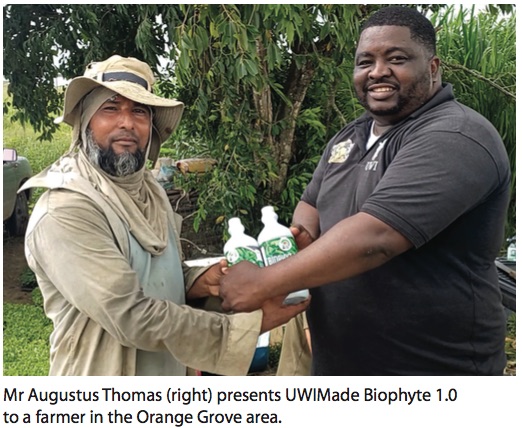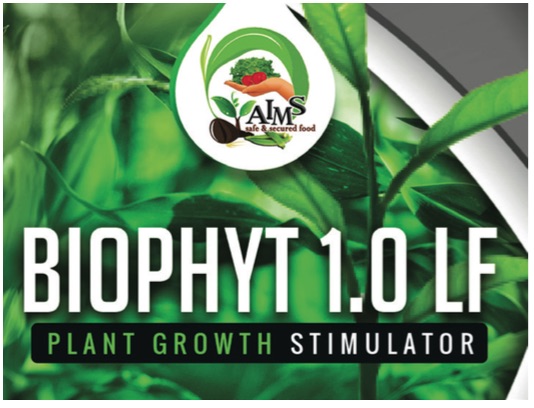In the Caribbean, the issue of food security and sovereignty looms, especially as we have seen the effects of a crisis like a global pandemic on the region's capacity to import food. In 2023, the United Nations' World Food Programme and CARICOM found that 3.7 million people in the English-speaking Caribbean face food insecurity.

To ensure that we have access to healthy, safe, and sustainable sources of the local foods, we have to look at how we can support and nurture the agricultural sector. Researchers at The UWI St Augustine's Faculty of Food and Agriculture have been working on providing a variety of services to support the farming community – but since the onset of COVID-19, these efforts have become more important than ever.
Senior Laboratory Technician in the Department of Food Production Augustus Thomas, who has been instrumental to these efforts, noted that there is a wide range of issues being faced by our nation's farmers, and the department has established a range of services, from testing the quality of the soil, to the nutritional value of the food being fed to livestock, to the health of plants being cultivated.
"Farmers are having challenges in properly addressing issues," said Thomas. "We have been trying to make it a well-rounded service. In the department, we have experts in soils, in animals, in crops, in food."
While the department began many of their current projects in 2019, the pandemic put much of their work on hold, until they could begin analysing what the new agricultural landscape would require in 2021. Those first virtual meetings were instrumental to what the project would become today. But, to be really effective, they needed boots on the ground.
"In the AES [Agro-Environmental Services], we like to visit the farmers, because if we're on-site, it helps us to identify the challenges and develop management strategies," says Thomas.

A part of the drive to help us be more resilient to these types of crises is considering our food security from the very beginning of the agricultural cycle.
"One thing we have to do is have our own seeds," says Thomas. "We talk about being food secure, but one of the challenges is having to rely on outside supplies for seeds. Until we can produce our own seeds, we won't be entirely secure."
One of the projects the department is working on is developing an extensive seed bank to help mitigate this problem, so that we have our own stores of locally grown seeds to ensure that our food production is not hampered should there be another global crisis that affects our ability to import goods.
The pandemic is not the only global issue that has upended the agricultural industry. Climate change has also affected the region, with more frequently occurring natural disasters, and more extreme dryness and flooding weather events having an impact on crop yields. As part of the effort to become more environmentally sustainable and help mitigate the effects of climate change on the region, the Faculty of Food and Agriculture have been trying to encourage farmers to adopt more sustainable methods of solving the issues they face.
One of the changes to the farming culture that is widespread currently is replacing the use of chemical pesticides with more environmentally sustainable alternatives. The department has developed its own biological agent to treat crops in lieu of pesticides, Biophyt.

"The active ingredient in [Biophyt] is non-toxic to humans and the environment," says Thomas.
He notes that the product contains an organism isolated from the soil rhizosphere that works as a preventative measure against plant pathogens, and helps to solubilise nutrients, enriching the soil the plants are grown in.
"It's much better for our environment, for our water sources, and for the farmers themselves," says Thomas.
Of course, cultural change can be slow, especially when it involves an industry changing its habits in a way that might introduce financial risk. Farmers may be reticent to adopt more sustainable methods because their livelihoods depend on doing what works. However, farmers who have taken on the challenge of transitioning across to more environmentally friendly practices with the support of the department have seen a positive impact on their crop yields.
For those who have tried Biophyt, their feedback has been overwhelmingly positive. For these methods to work, however, there must be a proactive rather than a reactive response to issues.
"This is not a synthetic product," says Thomas. "It responds slower."
While pesticides might have more of an immediate effect for pathogen or pest management, they also leach into soil and water systems, having a toxic effect on the environment and the health of the farmers who grow the food and the people who eat it.
To really reach the people in the agricultural community who need the most support, it is vital that the department engages in outreach and education as part of their ongoing work. In July of this year, the AES began taking their services mobile, with a free initiative in the Orange Grove area that saw the team visiting farm sites and offering their diagnostic services on location.
For Thomas, these initiatives are part of the mission of the department to "contribute to society", which has been a personal goal of his during his tenure there.